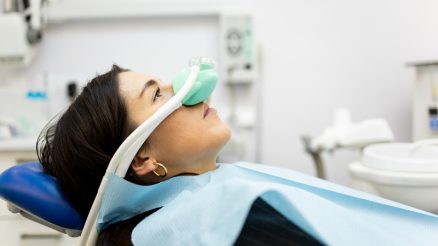It’s the kind of thing you never want to think about, but when a dental emergency strikes your family, being prepared can make all the difference. Whether it’s a sudden toothache, a knocked-out tooth, or an unexpected facial injury, knowing the right steps to take can save you a great deal of stress. And while we hope these situations never arise, it’s essential to have a game plan. So here’s how to handle a dental crisis smoothly and effectively.
Understanding Dental Emergencies
A dental emergency can range from infections to injuries. Some common dental emergencies include:
- Severe toothache
- Chipped or broken teeth
- Knocked-out teeth
- Lost fillings or crowns
- Abscesses or infections
- Bleeding gums
- Swelling in the mouth or facial area
These situations require prompt attention, and delaying treatment could exacerbate the problem and even lead to more severe health complications. This is why being prepared is crucial.
Creating a Dental First Aid Kit
Just as we keep band-aids and antiseptics on hand for cuts and scrapes, having a dental first-aid kit is a proactive step. Your kit should include:
- Sterile gauze pads to control bleeding
- Salt packets for saline solution
- Floss to remove any lodged debris
- A small container with a lid to transport a knocked-out tooth
- Over-the-counter pain relievers
- Ice packs to reduce swelling
- Temporary dental cement for lost fillings or crowns
- The contact details of your dentist
Maintain Regular Dental Check-Ups
Prevention is the best preparation. Regular visits to your Bloor West dentist can identify potential issues before they become emergencies. Issues like decay, cracks, or loose restorations can be addressed early on, saving you and your loved ones from unexpected pain and treatments.
Know Who to Call
Establish a relationship with a dentist you trust and who can provide emergency care. Keep their contact information handy—in your phone, wallet, and on the fridge. If you’re subscribed to a dental insurance plan, keep a copy of the card with you, too. It will not only expedite treatment but also make the financial aspects less daunting.
Educating Your Family on Dental Emergencies
Talk to your family members, especially children, about what to do in case of a dental emergency. Simple tips like not panicking, avoiding eating or drinking beforehand, and carefully preserving a knocked-out tooth can be lifesaving. Encourage wearing protective mouthguards during sports and other high-risk activities to prevent injuries.
Steps for Specific Dental Emergencies
Different situations call for different responses. Here’s what to do in the event of several typical dental emergencies:
Toothache
Begin by gently rinsing the mouth with warm water and using floss to remove any possible lodged food. If pain persists, contact your dentist instead of placing aspirin or any other painkiller against the gums near the aching tooth, as this could burn the gum tissue.
Chipped or Broken Teeth
Save any pieces of the tooth and rinse both your mouth and the fragments with warm water. If bleeding, apply gauze until the bleeding stops. Use a cold compress outside the mouth to keep down swelling, and seek dental care immediately.
Knocked-Out Tooth
Retrieve the tooth by the crown, not the root, and gently rinse it without scrubbing. If possible, attempt to place the tooth back in its socket. Otherwise, keep it in a container of milk (or water with a pinch of salt) and rush to a cosmetic dentist Bloor West or an emergency dental clinic as soon as possible—the sooner a knocked-out tooth is reinserted, the better the chances of saving it.
Remember, in any dental emergency, speed is of the essence. However, stay calm and act thoughtfully, as hasty or incorrect actions can further damage oral structures.
Insurance and Emergency Dental Coverage
Before an emergency strikes, it’s a good idea to review your dental insurance policy and understand what’s covered in an emergency. Keep this information with your dental first aid kit.
Some policies may require treatment at specific locations or within a certain time frame after an incident. If you’re unsure, call your insurance provider for a quick clarification. This preparation can save you money and ensure that your family receives the necessary care without financial strain.
Caring for Your Teeth Post-Emergency
After an emergency, proper follow-up care is crucial. Depending on the emergency you’ve experienced, your dentist will provide specific instructions for post-treatment care. You may need to take a course of antibiotics, eat soft foods, or apply cold compresses at intervals. It’s important to follow these instructions carefully to ensure a smooth recovery.
Final Thoughts
Being ready for a dental emergency can be simple. Equip yourself with a well-stocked dental first aid kit, stay consistent with dental check-ups, understand the steps for common emergencies, and get to know your insurance details. Taking these measures now ensures confidence if an emergency arises. Trust in your dental care team’s expertise to help keep your family’s smiles healthy, no matter what comes your way.





